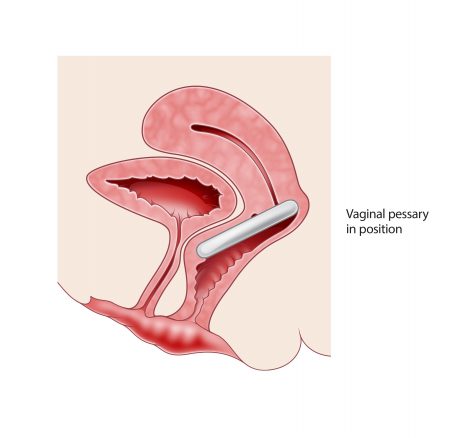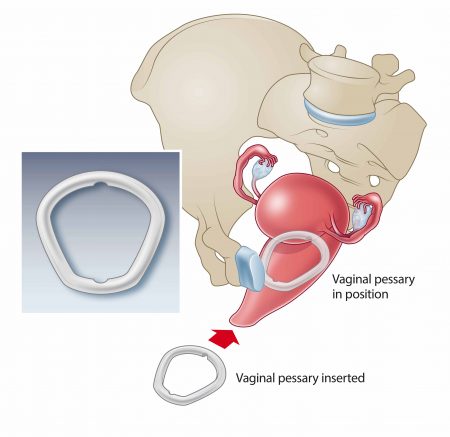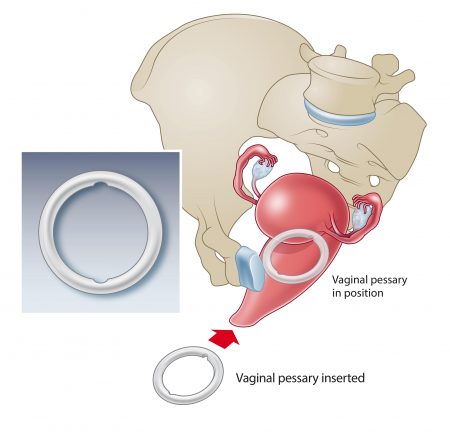The two non-surgical options for prolapse are pelvic floor muscle training (PFMT) and a vaginal pessary. PFMT can be effective for mild prolapse but is usually not successful for moderate and advanced prolapse. The main alternative to surgery for prolapse is a vaginal pessary. A vaginal pessary is a device, usually round in shape, that is placed in the vagina and supports the pelvic organs (vagina, uterus, bladder and rectum). If you choose to try a vaginal pessary Dr Carey will fit the pessary in the consulting room. Pessary fitting typically takes just a few minutes. A pessary can be used as a short or long term treatment option for prolapse. Recent research of Dr Carey’s own patients, suggests that 3 out of 5 women successfully fitted with a pessary continue to use the pessary beyond 1 year.
The illustrations below show different types of vaginal pessaries positioned in the vagina and supporting the vagina and pelvic organs.



 Dr Carey will be happy to answer any questions you may have and can give more specific advice. Before deciding to have surgery, you should read carefully all the information about your operation and consider obtaining a second opinion.
Dr Carey will be happy to answer any questions you may have and can give more specific advice. Before deciding to have surgery, you should read carefully all the information about your operation and consider obtaining a second opinion.If you experience complications after you leave hospital, contact Dr Carey or the nursing staff on 1 West at the Epworth Freemasons Hospital for advice. In an emergency you may attend the Royal Women’s Hospital, Parkville or Epworth Hospital, Richmond emergency department or attend your closest hospital emergency department.
